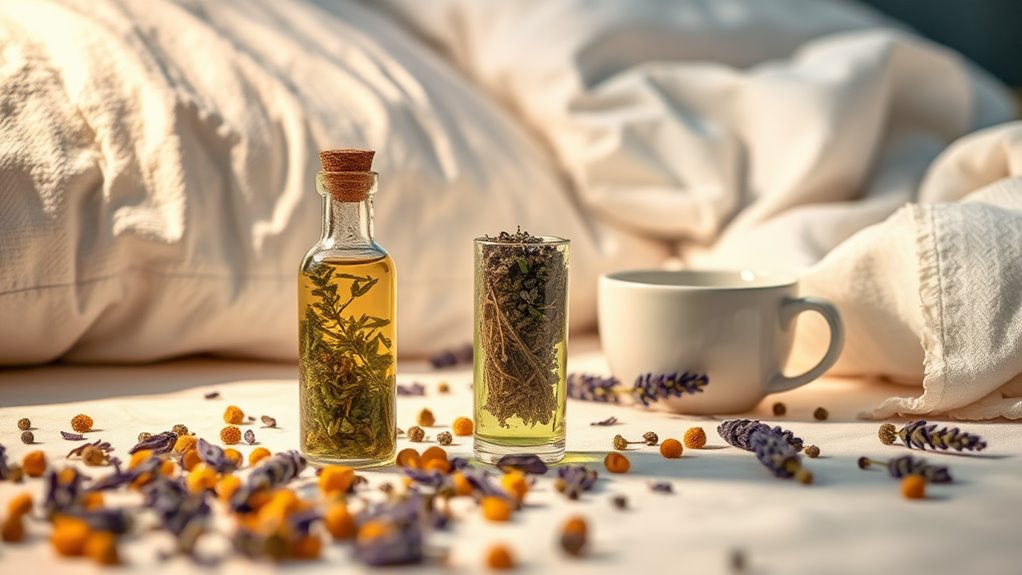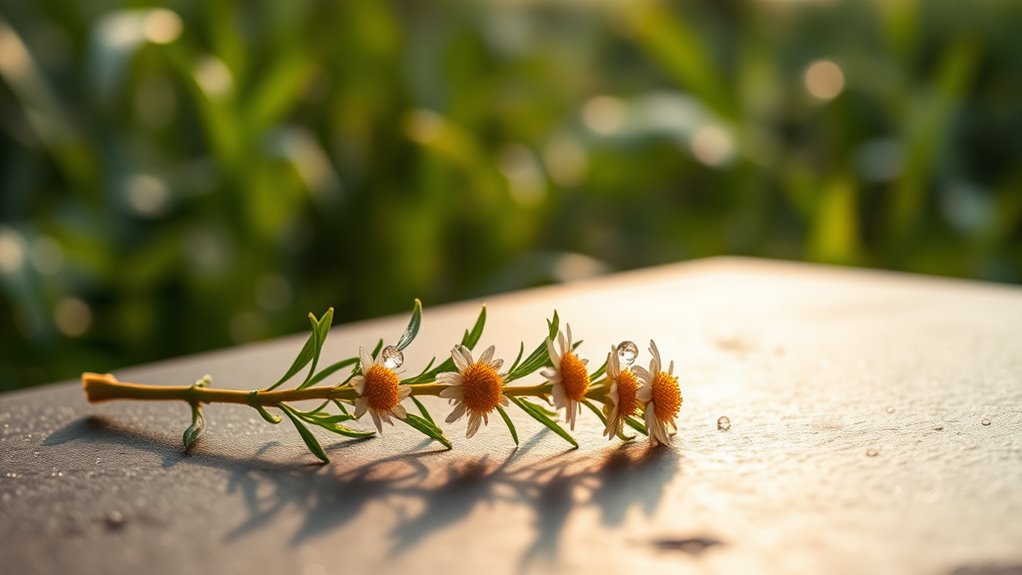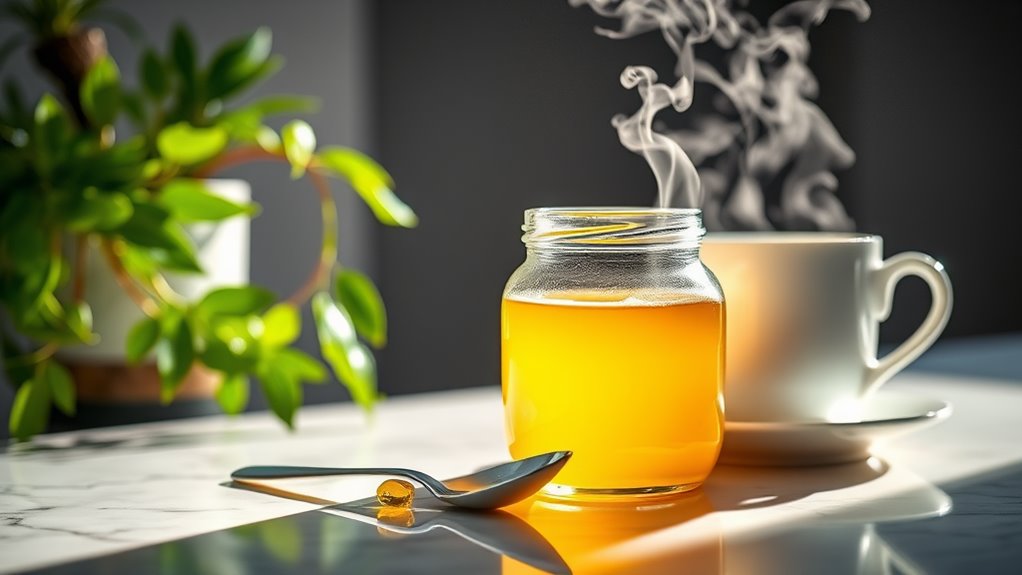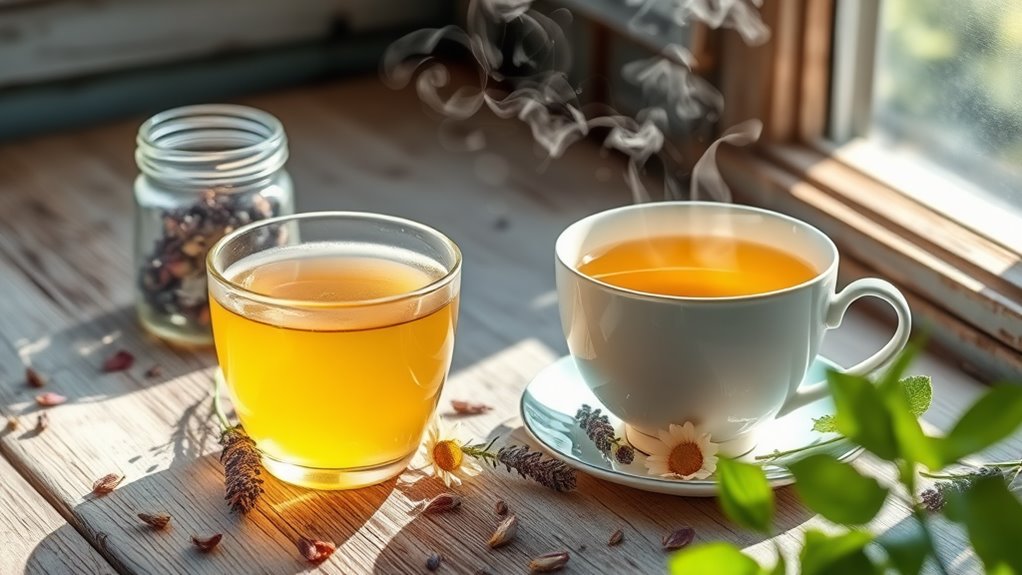The Herbal Sleep Aid That Works in Under 15 Minutes
Overview of Herbal Sleep Aids
Herbal sleep aids offer a natural alternative for those struggling with insomnia or restless nights.
You can explore various herbs for better sleep, like chamomile, valerian root, and passionflower, which have soothing properties.
These herbs can help calm your mind, making it easier to drift off. Additionally, incorporating sleep-promoting herbs into your nighttime routine can enhance overall sleep quality.
Fast-Acting Botanicals for Sleep
Several fast-acting botanicals can help you fall asleep quicker and enjoy a more restful night. Valerian root is known for its calming effects, while passionflower promotes relaxation. Chamomile tea can soothe your mind, and lavender essential oil offers a fragrant way to unwind. Incorporating these herbs into your routine may enhance your sleep quality, making it easier to drift off when you need it most. Additionally, fast-acting herbal remedies can provide immediate relief for those struggling with insomnia or restless nights.
Dosage and Preparation Methods
To get the most out of fast-acting botanicals for sleep, understanding the right dosage and preparation methods is key.
Generally, a dose of 300-500 mg of herbal extract works well. You can prepare a tea by steeping dried herbs in hot water for about 10 minutes.
Alternatively, capsules or tinctures offer convenient options for quick consumption before bedtime. Always follow product instructions for best results.
Potential Interactions and Safety Considerations
Although many herbal sleep aids can promote relaxation, it’s crucial to be aware of potential interactions and safety considerations.
Check with your doctor before combining these aids with prescription medications, as they might amplify or diminish effects.
Also, monitor for any allergic reactions or side effects.
Always start with a low dose and listen to your body’s responses for a safer experience. Additionally, certain herbs like chamomile are known for their calming effects but can interact with blood thinners.




